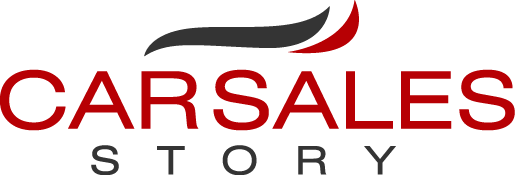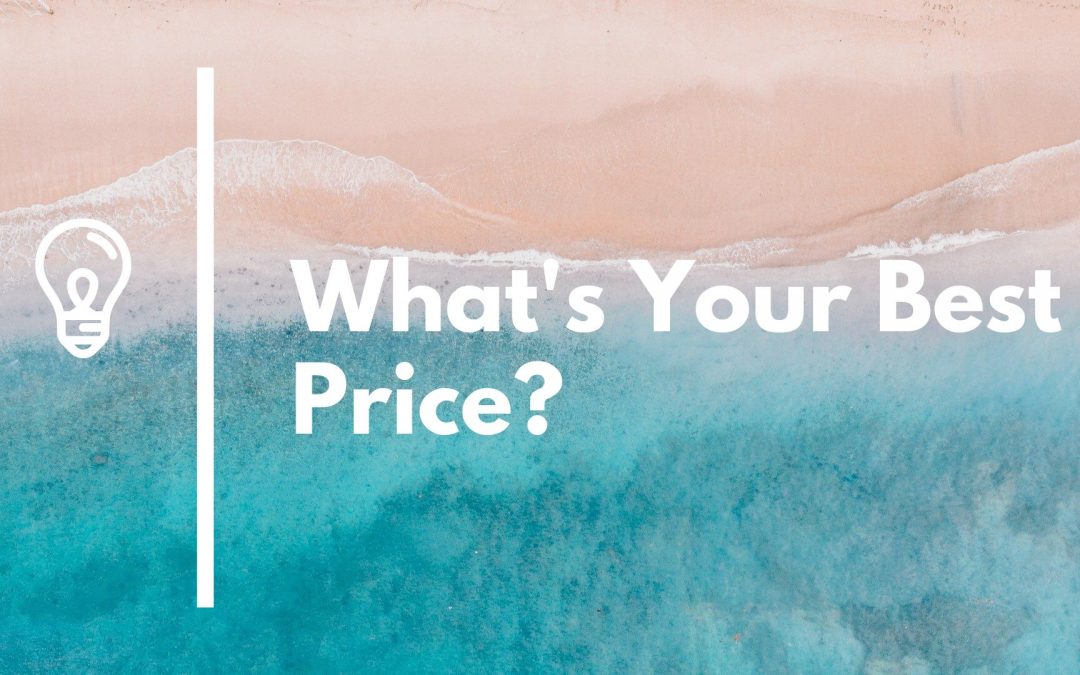Car salespeople are continually walking a fine line when dealing with customers.
Some parts are wonderful, other parts are tough.
Negotiating price can be tough.
Here you are, working with customers. You try and build trust, offer value. You work hard to answer questions and guide customers.
Everything is going well, until, you guessed it, they ask the critical question.
“What’s your best price?”
This question is a minefield.
Here is the underlying problem: there is no such thing as the “best price.”
Why not?
You see, markets are alive. As goods and services get bought and sold, and prices shift.
Whereas some things have a relatively fixed value, such as a pound of Bananas in the United States (79 cents everywhere I go!), many things have values that are “floating-point.”
These products, such as boats, cars, and houses, are “worth” whatever someone is willing to pay for them at that time.
When a customer asks you, “what’s your best price?”
They are asking, “what is the lowest price that you will sell me this vehicle for?”
The truth is, the “lowest price you will sell a car” depends on a host of variables. The business math behind the lowest cost you will offer a customer depends on:
- Timeliness (how soon are you buying?)
- Potential for Service Business (are you local?)
- Potential for Alternative Profits (are you financing? are you leasing? do you have a trade-in?)
- Relation (are you a relative, a friend, a family member?)
On top of those variables, the price of a car depends on the market.
The price I will sell a car depends on the price everyone else is selling their cars because I want my store to be a “value leader.”
If I want my store to have a reputation for being a “value leader,” I might be very concerned with what my nearby dealerships are willing to do on price.
Say, for example, I get a brand new product. It’s a Hybrid Q5, brand new to the market. I get 30-40 units to sell in the next 90 days.
A customer comes in and says, “what’s your best price for this car?”
Well, this Q5 hybrid is a brand new model! This car is a hot product with plenty of customers calling in to set appointments to see it.
You respond to the customer, graciously explaining that this a brand new model and our best price is MSRP.
If the customer responds with “well, I have a quote for your neighboring dealer for $3k off, here is the printout,” then you need to change your strategy.
If you want to compete, your best price is changing. It changed before your eyes!
The Biggest Pitfall
Here is a classic mistake salespeople make:
They’ve spent 2 hours with a customer on a cold Saturday afternoon. The salesperson has test-driven, shown the colors, and settled the customer on a specific car.
The customer, sitting at the desk, explains that although they are not buying today, they want to know your best price.
Thus, the gamble emerges!
If you present a price and call it your “best price,” they may accept it. They aren’t buying today, but if they take that the price presented is the best, you can hopefully move forward efficiently the next time they come in.
Here is the problem.
The customer has likely already put in an internet lead. That means that, regardless of if they want to shop you or not, they are almost guaranteed to end up talking to other salespeople.
These other salespeople are hungry for the business.
Here is the thing- you spent two hours with the customer. You have done the legwork. If the salesperson that is calling this customer can just offer a better price, that is a small price to pay to get a customer that is ready to make a deal!
This is how that conversation goes between your customer (Matt) and your competition (Sally):
*RING* *RING*
Matt: Uh, hello?
Sally: Hi! Is this Matt?
Matt: Yes, who is this?
Sally: This is Sally from Audi PT! I saw that you were looking at Truecar.com at the Audi Q5?
Matt: Oh, hi, yes, thanks for calling. I’ve already started to work with a sales guy, Jim, from Audi Oceanside. Thanks for calling, though!
Sally: Before you hang up! Did he provide you a quote?
Matt: Yes…
Sally: What did he say?
Matt: Uh, he said that the best he could do was 8% off. (No matter how much Matt liked you, money talks, and now he is curious!)
Sally: 8%?! Did he say that was the best he could do?
Matt: Uh, yeah, he said that was the best price.
Sally: I have good news. That’s not the best price. If you come today, I can do 8% off plus an extra $700! On top of that, my dealership has a unique offer, and we give every customer a discount on their first three services.
Matt: An extra $700? Well, I’m already working with Matt…
Sally: How about I make that a clean $900, and we call it a deal?
PAUSE HERE
Here lies the problem:
If Matt liked you, then he wants to buy from you. After all, he trusts you!
Now, the problem is, if you said that 8% is the best price, and he trusts you, there are only two realities in his mind:
- 8% is the best you can offer. There is no point calling you to ask if you can match the $750, that would be rude (since you are an honest salesperson that told the truth).
- 8% was not the actual best that you could do, so you lied. No matter what happens after, you have lost trust. In Matt’s mind, he had to go to someone else to find out a better price.
Neither of those realities sounds good. In the first option, Matt buys elsewhere. In the second option, he calls you to ask if you can match, but it’s clear that you have lost trust. Also, he is going to feel awkward calling you.
The customer doesn’t realize that car prices are a floating-point. The definition of the best price is always shifting with the market.
You can’t quote an exact whole-market “best price” because it can change at any moment.
The Other Trap
Now, this goes one level deeper.
If you have a customer that is leaving, and you avoid answering the “best price” question, you run the risk of seeming like you are “playing games.”
Almost every customer values transparency, but customers also expect to have to negotiate.
So how do you come across in a way that:
- You aren’t playing games
- You are willing to negotiate
- While also allowing you to skirt the “best price” question?
My Solution: Be a Human
When in doubt, honesty is the best policy.
If you have followed my other training, then you know that I believe that the ability for you to convey your personality and value to customers is critical to selling.
Never forget the golden rule of car sales:
People buy from people they like.
So, if you have followed this advice, you just need to leverage this social capital (i.e., ask for a favor) politely and straightforwardly.
The following is the basics of what I say in the situation that I’ve outlined above (a customer leaving the dealership after receiving my quote):
“I hope that you’ve had a good experience here today (pause for agreement). I want to convey that I am wholeheartedly dedicated to selling you a car, and I want you to know that I will do whatever I can to earn your business.
While I’m confident that the quote I’ve provided you is both fair and competitive, I understand the realities of buying a car in the 21st century.
If you do receive a lower quote from another dealer, please reach out to me before making a decision. Again- I don’t think that another dealer will quote you less. But if for some reason it is, please think of contacting me before making the purchase.
Would that work for you?”
In the end, this seems to work. If you have made the customer like you, then you can ask them this favor. Very few customers will react poorly to this messaging.
This way of talking to a customer, being upfront, honest, and genuine, works for me.
Review: How to Overcome “Best Price”
There is always a fear when using the above messaging that you will inspire customers to “shop around.”
The reality is that almost every customer is going to receive competitor offers, regardless of whether they requested them or not. It’s just how lead generation websites work (Truecar, KBB, Costco). They want to sell the customer’s information to as many buyers as possible.
Your customers are going to receive quotes- there is nothing you can do about it.
That said, if you use my messaging, you will bridge the gap. If you can perfect it, you will significantly increase your internet lead closing percentage.


